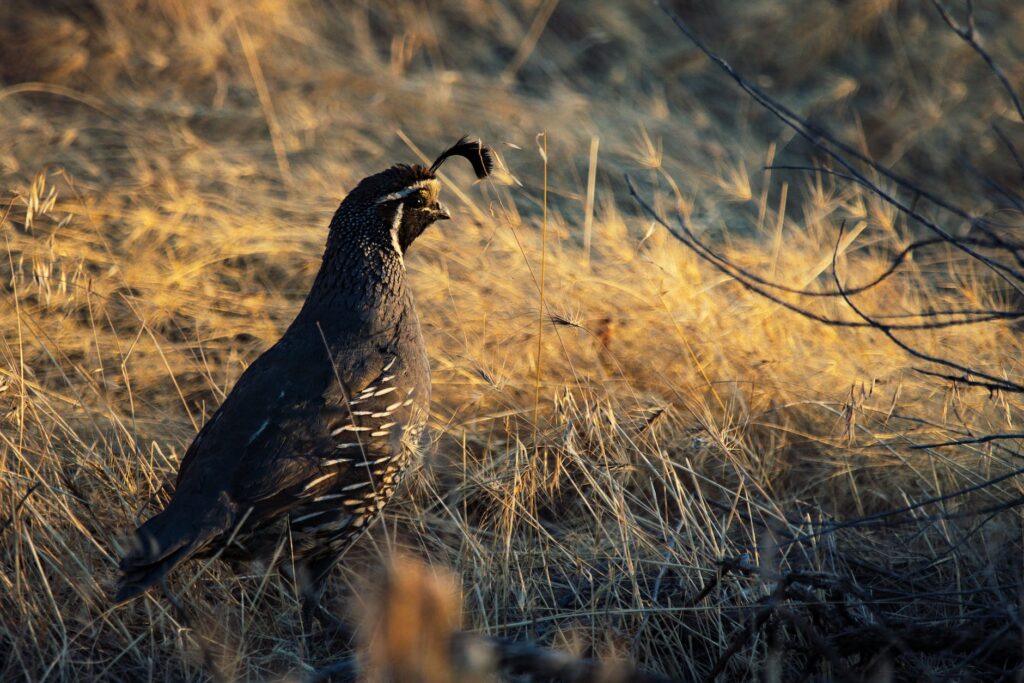As a quail farmer, I’ve spent countless hours observing and interacting with my quail flock, and one thing that has become clear to me is that understanding quail behavior is crucial for effective flock management. Quail are fascinating birds with unique behaviors that can provide insights into their health, well-being, and productivity. I want to share some valuable insights I’ve gained about quail behavior through my experience of raising these birds on my farm. So let’s dive in and explore the world of quail behavior!
Quail Behavior: Social
One of the first things I learned about quail behavior is that they are highly social birds. Quail are known for their strong flocking instinct. They prefer to live in groups rather than being solitary birds. They thrive in a community environment where they can interact with one another, establish pecking orders, and engage in social behaviors such as preening, dust bathing, and foraging together. It’s important to provide ample space for your quail to move around and socialize. Overcrowding can lead to stress, aggression, and reduced egg production.
Quail Behavior: Secretive
Another interesting aspect of quail behavior is their instinct to hide or take cover when they feel threatened. Quail are known for their secretive nature and are skilled at finding hiding spots in their environment. They use their excellent camouflage to blend in with their surroundings and avoid potential dangers. As a quail farmer, it’s important to provide your quail with adequate hiding spots in their enclosure, such as dense vegetation, nesting boxes, or shelters. This will help them feel secure and reduce stress levels, which in turn can promote better health and productivity in your flock.
Quail Behavior: Reproduction
Quail also exhibit distinctive reproductive behavior. Male quail, known as cocks, engage in elaborate courtship displays to attract females, or hens, during the breeding season. These displays may include puffing up their chests, fanning their tail feathers, and making distinctive calls to impress the females. Once a pair forms a bond, they will engage in nesting behavior, with the female laying eggs in a well-hidden nest on the ground or in a nesting box. Understanding the reproductive behavior of quail can help you optimize your breeding program and ensure successful reproduction in your flock.
Quail Behavior: Foraging
They are also known for their foraging behavior. They are natural scavengers and have a keen sense of smell, sight, and hearing that helps them locate food in their environment. Quail have a diverse diet that includes insects, seeds, fruits, and vegetation. They are also known to eat small mammals and reptiles, making them omnivorous birds. As a quail farmer, it’s important to provide your quail with a balanced and nutritious diet to promote their health and productivity. This may include a combination of commercial quail feed, fresh fruits and vegetables, and insects or other protein sources. Monitoring your quail’s foraging behavior can also provide insights into their health and well-being. If you notice a decrease in foraging activity, it may be an indication of health issues or environmental stressors that need to be addressed.
Quail Behavior: Egg Laying
Quail also exhibit specific behaviors related to egg-laying. Female quail, or hens, are prolific layers and can lay a large number of eggs in a short period of time. However, their egg-laying behavior can be influenced by various factors, including lighting, temperature, and stress levels. Understanding these factors and managing them effectively can help optimize your quail’s egg production. For example, providing consistent lighting conditions, maintaining appropriate temperature levels, and reducing stressors such as overcrowding or sudden changes in the environment can all contribute to better egg production in your quail flock.
As a quail farmer, it’s important to be attentive to the behavior of your quail flock on a daily basis. Regular observation and interaction with your quail will insure you catch problems early and have happy healthy quail as a result.

